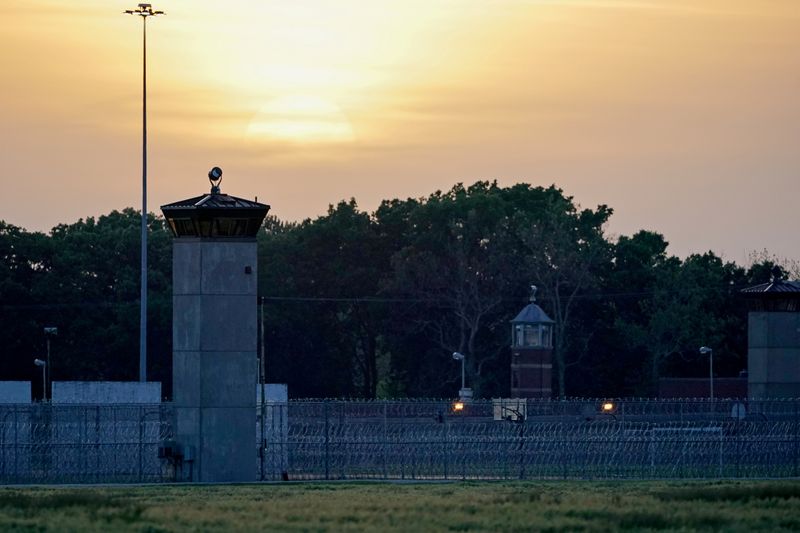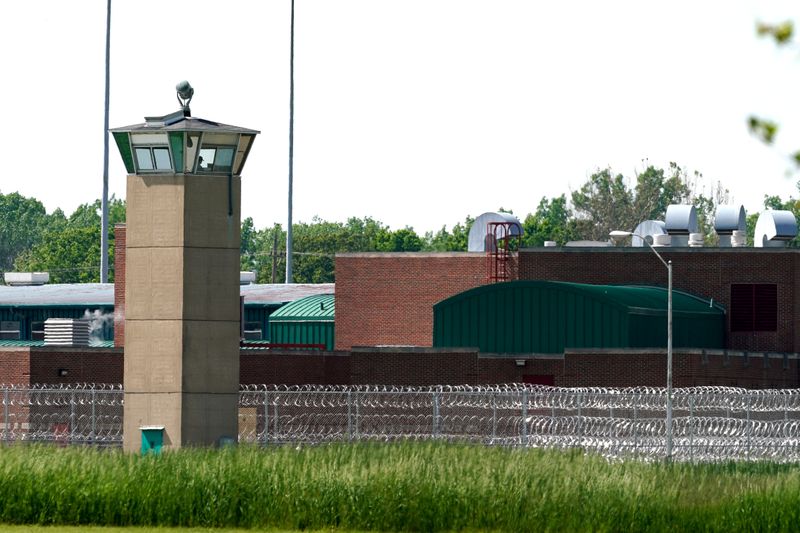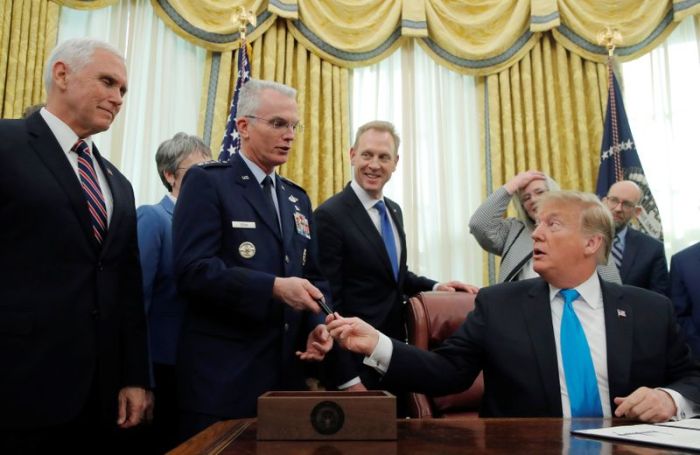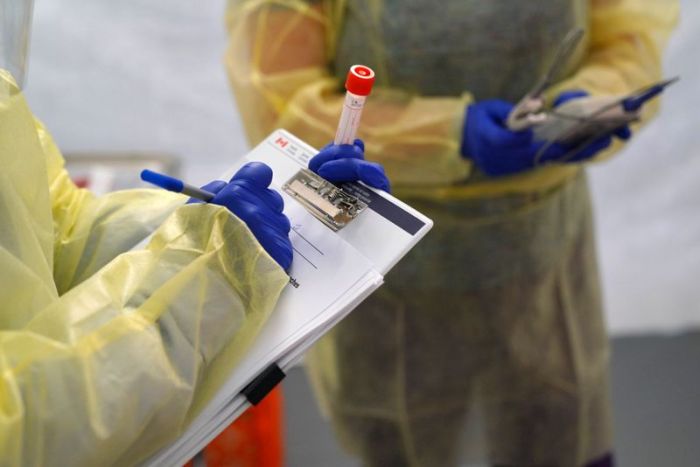(Reuters) – The U.S. government executed convicted murderer Christopher Vialva on Thursday, the first Black man to suffer the federal death penalty since the punishment was resumed this summer after a 17-year hiatus.
Vialva was 19 years old when he and fellow members of a gang in Killeen, Texas, killed Todd and Stacie Bagley, white married Christian youth ministers from Iowa, on the Fort Hood army base in 1999.
He was pronounced dead at 6:46 p.m. after U.S. Department of Justice officials injected him with pentobarbital, a barbiturate, at the execution chamber in Terre Haute, Indiana, according to a reporter serving as a media witness.
Vialva, a Messianic Jew, used his last words to ask God to comfort his victims’ families, according to the media witness.
“Heal their hearts with grace and love,” he said. “I’m ready, Father.” After the injections began, he furrowed his brow, yawned and looked toward the witness room from which his mother was expected to view his execution. Within minutes, he stopped moving, his mouth agape.
It was the seventh federal execution this year, and the second this week, after the practice was resumed by President Donald Trump’s administration.
Under Trump, the Justice Department has now executed twice as many men this year as all of Trump’s predecessors combined going back to 1963. It is the most executions within a single year by the U.S. government since at least 1927, the oldest year of records in a database compiled by the Death Penalty Information Center (DPIC) in Washington.
The execution of Vialva, 40, comes as the nation grapples with racial disparities in the criminal justice system, with daily protests over occurring against police brutality against Black people.
Of the 56 people on federal death row, 26, or 46%, are Black, and 22, or 39%, are white. Black people are only 13% of the U.S. population.
DPIC published a report this month concluding that racial bias persists in the U.S. system of capital punishment in which the killers of white people were more likely to face the death penalty than the killers of Black people.
At Vialva’s trial in 2000, a jury of 11 white people and one Black person found him and a Black accomplice, Brandon Bernard, guilty of carjacking and murder. Bernard’s execution date has not been set.
According to court records, Vialva and his accomplices were looking for someone to rob when they found Todd Bagley using a payphone at a store, and he agreed to give them a ride in his car. In the back seat, Vialva pulled out a gun and ordered Bagley and his wife to get into the car’s trunk.
After forcing Bagley to disclose his PIN, Vialva withdrew cash from Bagley’s account at an ATM, though there was less than $100 on deposit. He bought some fast food and cigarettes. During the several hours they spent in the trunk, the Bagleys could be heard telling their kidnappers to embrace Christianity.
Eventually, Vialva parked the car in an isolated part of Fort Hood, opened the trunk and shot both Bagleys in the head, killing Todd and rendering Stacie unconscious. Bernard then set the car on fire, and an autopsy showed that Stacie Bagley died from smoke inhalation.
Todd Bagley’s mother, Georgia Bailey, welcomed the execution in a statement shared by the Bureau of Prisons, saying it should have happened within three to five years of the crime, not 21.
“They were willing to lay down their lives to try and win their kidnappers to the Lord by quoting scripture, praying, and singing praises to God before they died,” her statement said. “We’ll never know how many people they could have influenced for good if they had been given the chance.”
(Reporting by Jonathan Allen in New York; Editing by Cynthia Osterman, Daniel Wallis and Tom Brown)


























